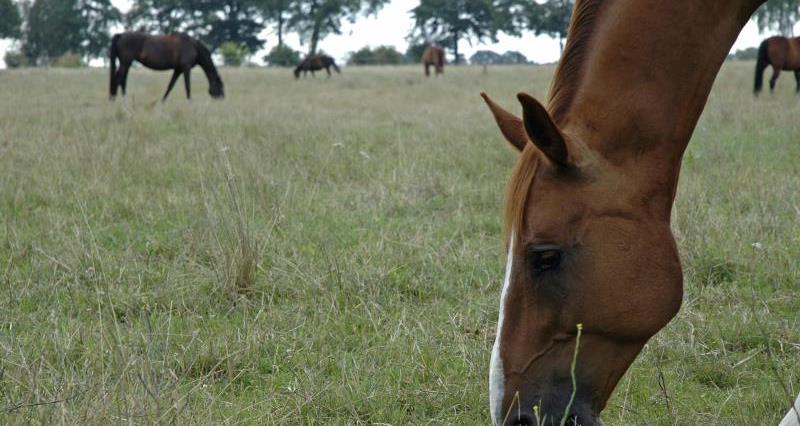Equine flu is not zoonotic (meaning it cannot be transferred to humans) as it is a slightly different strain of the flu virus to the one humans contract. There have been reports of Equine Influenza affecting donkeys, mules and dogs in previous outbreaks; there have been no reports of any other species being affected by the virus.
It is important to look out for the signs of equine flu when caring for your horse:
Symptoms
- A very high temperature of 39-41C (103-106F) which lasts for one to three days
- A frequent harsh, dry cough that can last for several weeks
- A clear, watery nasal discharge that may become thick and yellow or green
- Enlarged glands under the lower jaw
- Clear discharge from the eyes and redness around eyes
- Lethargy and loss of appetite
- Filling of the lower limbs
Due to the contagious nature of equine flu, you should move your horse to isolated housing facilities with strict hygiene protocols if you suspect it has the virus. You should also contact your vet as soon as possible.
Any other horses which have been schooled, housed or kept in a field with your horse should be carefully monitored in case they begin to display symptoms of the virus. Additionally, you should refrain from taking your horse and horses which have had contact with your horse to shows and events.
Treatment
Unfortunately, as equine flu is viral and not bacterial, antibiotics are ineffective as treatment. There are no anti-viral drugs proven to benefit horses with equine flu. Speak to your vet for recommendations of anti-inflammatory drugs which can aid in your horse’s recovery by reducing temperatures, reducing muscle soreness and encouraging eating and drinking.
Horses with equine flu or suspected equine flu should be put on complete rest. It is recommended that your horse should not restart any work or exercise until two weeks after the signs have completely gone.
It is important to ensure that stables are well ventilated with minimal exposure to dust and spores where possible. Weather permitting, it can be beneficial for horses to be turned out for at least part of the day once their temperatures have returned to normal.
Prevention
As with most diseases, prevention is better than cure. Fully vaccinated horses may still display mild symptoms of equine flu if exposed to the virus.
The current vaccination schedule is:
- 1st vaccine
- 2nd vaccine (21-92 days after first)
- 3rd vaccine (150-215 days after second)
- Booster (each 365 days)
Always consult your vet for the most up-to-date information about equine flu treatment and vaccination protocol.
